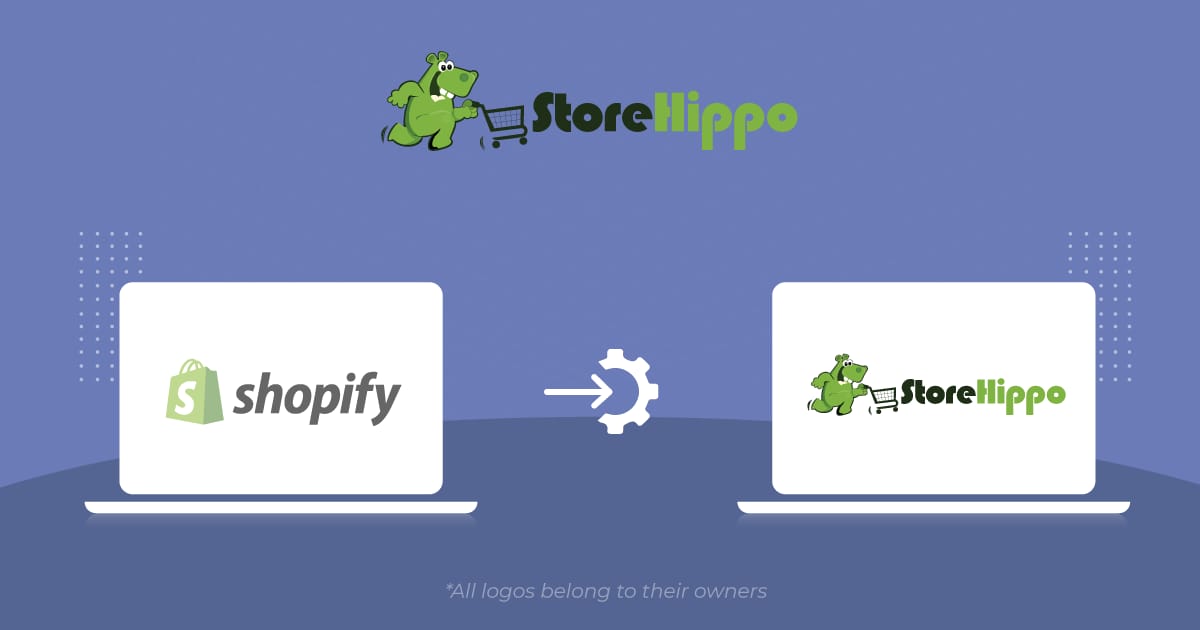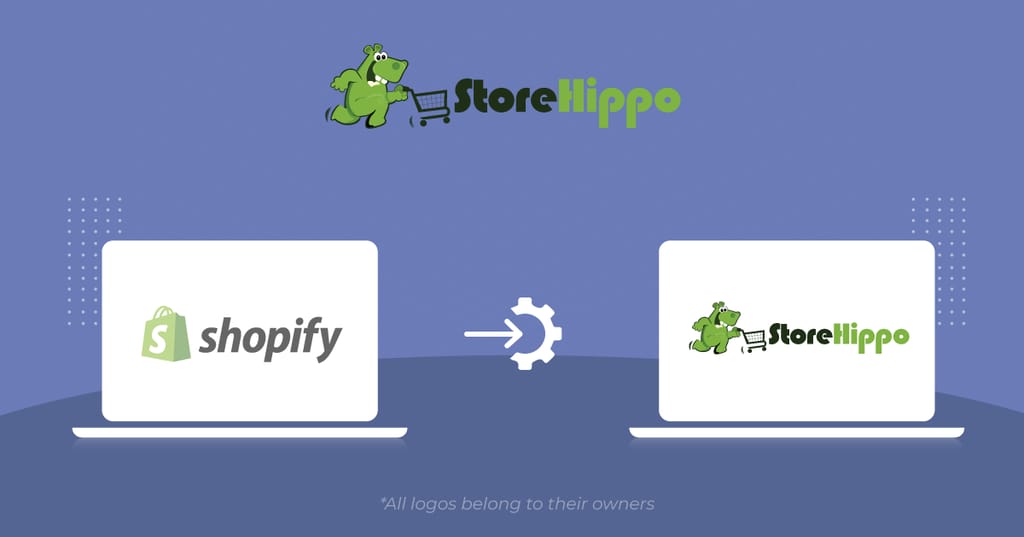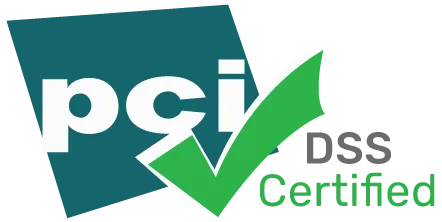Feeling overwhelmed with Shopify Plus?
You’re not alone.
Many businesses start planning to migrate to Shopify Plus alternatives as when they grow rapidly, they realize it’s not always the most flexible or capable option.
You might be asking yourself, “Is there a better solution out there?”
The answer is yes—if you’re ready to think bigger you certainly have better Shopify competitors.
As your business scales, so do your needs. Whether it’s handling a multi-vendor marketplace, simplifying mobile commerce, or managing complex B2B operations, you need smarter, more adaptable solutions.
So, what should you look for? Start with non-negotiables: scalability, customizable design tools, seamless integrations, and multilingual support. These features are essential for future-proofing your eCommerce journey.
In this blog, we will share with you a comprehensive list to help you decide.
Table of Contents
- Non Negotiable Features in Shopify Alternatives Designed For Growth
- 1. Scalability for High-Growth Businesses
- 2. Customizable Design and Themes
- 3. Multi-Vendor Marketplace Support
- 4. Mobile-First Architecture
- 5. Built-In Mobile Apps
- 6. Headless Commerce Capabilities
- 7. Omnichannel Commerce Support
- 8. Third-Party Integrations and APIs
- 9. Quick Commerce and Hyperlocal Solutions
- 10. Advanced Product Management
- 11. Multilingual and Multi-Currency Support
- 12. Built-In Marketing Tools
- 13. Seamless Integration with Payment Gateways
- 14. Integrated Logistics and Shipping Solutions
- 15. Strong Security and Compliance Features
- What Makes StoreHippo The Best Shopify Alternative For Your Business
- Conclusion
Non Negotiable Features in Shopify Alternatives Designed For Growth
When searching for an alternative to Shopify, particularly for growing enterprises, it’s essential to look beyond basic features and evaluate platforms that can accommodate long-term growth and operational efficiency.
Here are 15 critical things you should look for when considering the best Shopify Plus alternatives:
1. Scalability for High-Growth Businesses
Your eCommerce platform should accommodate exponential growth without hitting performance roadblocks. Scalability involves more than just handling increased traffic; it includes managing growing SKUs, transactions, customers, and integrations with ease. Ensure the platform you move to Shopify Plus alternatives is cloud-based and offers vertical and horizontal scaling to meet higher demands without additional infrastructure investment.
Look for features like auto-scaling, load balancing, and an architecture that adapts to spikes in traffic during peak sales seasons or campaigns. A scalable solution ensures that your website continues to function smoothly even with large traffic surges or expanding operations, preventing downtime and enhancing user experience.
2. Customizable Design and Themes
Every brand has a unique identity, and your platform should allow you to reflect that without limitations. Look for Shopify Plus alternatives that offer a wide array of customizable themes and flexible design options. An ideal platform will provide drag-and-drop theme builders and template libraries to help design a storefront that’s visually aligned with your brand.
The ability to tweak elements like fonts, colors, layouts, and navigation without heavy coding knowledge is crucial. This level of customization allows you to create an eCommerce experience that engages customers, builds trust, and enhances brand recall, while providing adaptability as your business evolves.
3. Multi-Vendor Marketplace Support
A strong Shopify Plus alternative should offer seamless multi-vendor support for businesses aiming to build a marketplace ecosystem. Look for a platform that allows you to onboard and manage multiple vendors efficiently, with features like vendor-specific dashboards, commission management, payout integration, and vendor performance analytics.
Multi-vendor support should include easy product cataloging for individual sellers, personalized storefronts, and tools to manage inventory and orders in real-time. Additionally, automated logistics and shipping management for multiple vendors help to streamline operations. A robust multi-vendor system can help you diversify product offerings, enhance customer choice, and generate new revenue streams.
4. Mobile-First Architecture
With over half of online shopping done on mobile devices, your platform must be optimized for mobile from the ground up. Mobile-first architecture means your store will not only look good on mobile devices but also provide smooth navigation, faster load times, and a superior user experience.
Look for platforms that automatically optimize your site's layout, images, and functionalities for mobile users. Features like mobile-friendly checkout processes, mobile payments, and push notifications help increase engagement and conversions. A mobile-first approach is critical to tapping into the growing mobile commerce trend, catering to customers who prioritize convenience, and staying competitive in an increasingly mobile-driven market. This is essential when planning to migrate to Shopify Plus alternatives.
5. Built-In Mobile Apps
As mobile commerce (mCommerce) continues to rise, having a mobile app for your store is essential. Many Shopify Plus alternatives offer built-in tools to create mobile apps for Android and iOS without the need for additional development teams. This functionality allows you to reach more customers on their preferred devices, offering them a more personalized and direct shopping experience.
Look for platforms that offer PWA (Progressive Web Apps) capabilities, which blend the best features of websites and apps for a seamless mobile experience. Built-in mobile app builders reduce time-to-market and help you engage with your customers through push notifications, personalized offers, and a smoother checkout process.
6. Headless Commerce Capabilities
Headless commerce decouples the frontend and backend of your eCommerce platform, giving you more flexibility to customize your storefront and integrate it with multiple touchpoints like mobile apps, kiosks, or social media. This approach offers greater control over the customer experience by allowing you to deploy rapid updates to your front-end without disrupting backend operations.
When looking to migrate to Shopify Plus alternatives, choose platforms that support headless commerce, enabling you to scale your business while offering a seamless omnichannel experience. With APIs and custom-built solutions, headless commerce helps businesses innovate faster and deliver personalized experiences across multiple platforms.
7. Omnichannel Commerce Support
As customer shopping habits evolve, the ability to sell across multiple channels is crucial. Look for a Shopify Plus alternative that offers omnichannel commerce solutions, enabling seamless integration between your online store, physical store, social media channels, and marketplaces like Amazon and Flipkart.
The platform should provide centralized inventory management, unified customer profiles, and order fulfillment across all channels to create a cohesive shopping experience. Offering omnichannel capabilities ensures that your customers can browse, buy, and return products from any channel while maintaining consistent interactions with your brand. This approach boosts customer loyalty and enhances your market reach across multiple sales platforms.
8. Third-Party Integrations and APIs
Your platform should easily integrate with third-party services and provide API access to extend its functionality. Whether it's accounting software, CRM systems, email marketing tools, or analytics platforms, seamless integration ensures that your business runs efficiently without having to juggle multiple systems.
A solid API framework allows you to build custom applications, automate workflows, or link with third-party tools, creating a fully integrated ecosystem for your business. Integration with leading tools and services like Google Analytics, payment gateways, logistics providers etc can drastically reduce manual work, streamline operations, and improve the overall customer experience, making your platform more adaptable to changing business needs. This is key for businesses considering Shopify Plus alternatives.
9. Quick Commerce and Hyperlocal Solutions
Quick commerce, particularly hyperlocal delivery, is becoming a game-changer for businesses looking to meet customer demand for fast deliveries. An ideal Shopify Plus alternative should enable hyperlocal delivery setups, including integration with local courier services and real-time tracking.
Look for features like location-based multi-store setups, which help you cater to customers within a specific radius, and automated routing for efficient order fulfillment. Support for notifications for delivery updates adds further value. Hyperlocal solutions allow businesses to offer same-day or next-day delivery, ensuring customer satisfaction and loyalty while reducing logistics costs and delivery times.
10. Advanced Product Management
Managing a large and diverse product catalog requires advanced features beyond basic inventory management. Choose a platform that offers comprehensive product management tools, such as bulk uploads, inventory tracking, SKU management, and variant creation for size, color, or style options. The ability to set custom pricing, discounts, and stock alerts should also be included.
Additionally, look for platforms that allow automated restocking and low-stock notifications, enabling you to maintain optimal inventory levels. Advanced product management tools streamline operations, reduce manual labor, and improve efficiency when handling hundreds or thousands of SKUs across multiple categories. This is important when you migrate to Shopify Plus alternatives.
11. Multilingual and Multi-Currency Support
For businesses with global ambitions, the ability to cater to different languages and currencies is a must. Look for platforms that support multiple languages and allow for automated translation tools or localization features to cater to diverse audiences. Multi-currency support is equally crucial, enabling customers to view product prices in their local currencies, with automatic conversion at checkout.
Platforms with geolocation capabilities can automatically detect the customer’s location and adjust the language and currency accordingly, providing a seamless shopping experience. This feature significantly enhances international sales, improves customer trust, and ensures compliance with local market expectations, making them ideal Shopify competitors.
12. Built-In Marketing Tools
An all-in-one platform should help you market your store effectively. Look for Shopify Plus alternatives that come with built-in marketing tools like SEO optimization features, seamless integrations with top marketing and analytics tools, discount solutions and social media integrations.
SEO features should include URL customization, meta tags, and mobile-optimized pages to enhance search engine visibility. Native marketing tools should support automated follow-ups to nurture leads. Platforms that provide integrated analytics for getting insights into buyer data, alongside integrations with popular tools like Google Analytics, Facebook Ads, or Mailchimp, allow for a seamless marketing workflow. With built-in marketing features, you can reduce dependency on third-party apps and boost customer acquisition and retention efficiently.
13. Seamless Integration with Payment Gateways
A platform's ability to integrate with various payment gateways is essential for providing a smooth checkout experience. Whether you are selling locally or internationally, look for an alternative to Shopify Plus that supports a wide range of payment methods, including credit cards, digital wallets (like Apple Pay and Google Pay), UPI, and COD.
Ensure that the platform complies with international security standards, such as PCI-DSS certification, to protect customer payment data. It should also facilitate recurring payments, subscription models, and support for popular buy-now-pay-later options. Offering customers a range of secure and convenient payment methods will enhance trust and improve your conversion rate.
14. Integrated Logistics and Shipping Solutions
Managing shipping and logistics efficiently can significantly enhance customer satisfaction and reduce operational costs. An ideal eCommerce platform should offer built-in shipping solutions that support a wide range of logistics partners.
Look for features like real-time shipping rates, label generation, and tracking integrations, along with the ability to offer customers multiple shipping options at checkout. Also look for solutions to manage delivery agents for local vendors. Integrated logistics tools should allow you to manage domestic and international shipments, ensuring that both small and large operations can handle shipping without hassle.
15. Strong Security and Compliance Features
Security is paramount for any eCommerce platform. Ensure that the platform you choose complies with global security standards, such as PCI-DSS for payment processing, multi-level data protection, encryption etc.
Look for features like two-factor authentication, SSL certificates, and end-to-end encryption to protect your customers’ sensitive information. Additionally, the platform should provide built-in fraud detection tools, anti-malware protection, and regular security audits to mitigate risks. In an age of rising cyber threats, your eCommerce platform must prioritize data security, both for your business and your customers, to build trust and protect against financial and reputational loss. This is essential when considering Shopify competitors.
Your ideal Shopify alternative should include all the above features to ensure that your replatforming effort is truly worthwhile.
What Makes StoreHippo The Best Shopify Alternative For Your Business
StoreHippo is a comprehensive eCommerce platform that meets all the criteria mentioned above, making it an ideal solution for various business models like B2B, D2C, B2B2C, and hyperlocal enterprises.
Its scalable architecture ensures seamless growth, supporting high-traffic demands with advanced features like auto-scaling and load balancing. StoreHippo offers customizable design tools, enabling brands to create unique and visually appealing storefronts. Additionally, its multi-vendor marketplace capabilities allow enterprises to manage multiple sellers efficiently, enhancing product offerings and diversifying revenue streams.
For businesses that focus on mobile commerce, StoreHippo’s mobile-first architecture ensures an optimized shopping experience across devices. Built-in marketing tools such as SEO-friendly platform, blog, engine, discount engine, seamless social media integrations and integrations with best marketing and analytics tools further help enterprises grow their customer base.
The platform also supports multilingual and multi-currency features, making it an ideal Shopify alternative for global or multi-regional operations. Seamless integration with a wide range of payment gateways and advanced product management tools streamline operations, reducing manual work.
StoreHippo is built on headless architecture, providing flexibility for businesses to create omnichannel experiences across different touchpoints. It also comes pre-integrated with logistics and shipping solutions, ensuring timely delivery for hyperlocal and global businesses alike. Whether you're looking to migrate to Shopify Plus alternatives or seeking a solution that supports your complex business model, StoreHippo is a superior choice among Shopify competitors for enterprises of all sizes.
Conclusion
Finding the right Shopify alternative depends on your business needs, growth strategy, and market focus. When searching for the right Shopify Plus alternative, StoreHippo presents itself as a versatile and robust option. Its flexible, scalable architecture and mobile-first approach make it ideal for a variety of business models, including B2B, D2C, and multi-vendor marketplaces.
With a range of powerful features—such as customizable design tools, seamless integrations, and advanced product management—StoreHippo provides the functionality needed to streamline operations and enhance growth. For businesses looking to move to a Shopify Plus alternative, StoreHippo offers a comprehensive solution designed to adapt to evolving business needs and drive long-term success.
Ready to explore better ecommerce platform options for your business? Start your 14-day free trial now.





















Leave A Comment